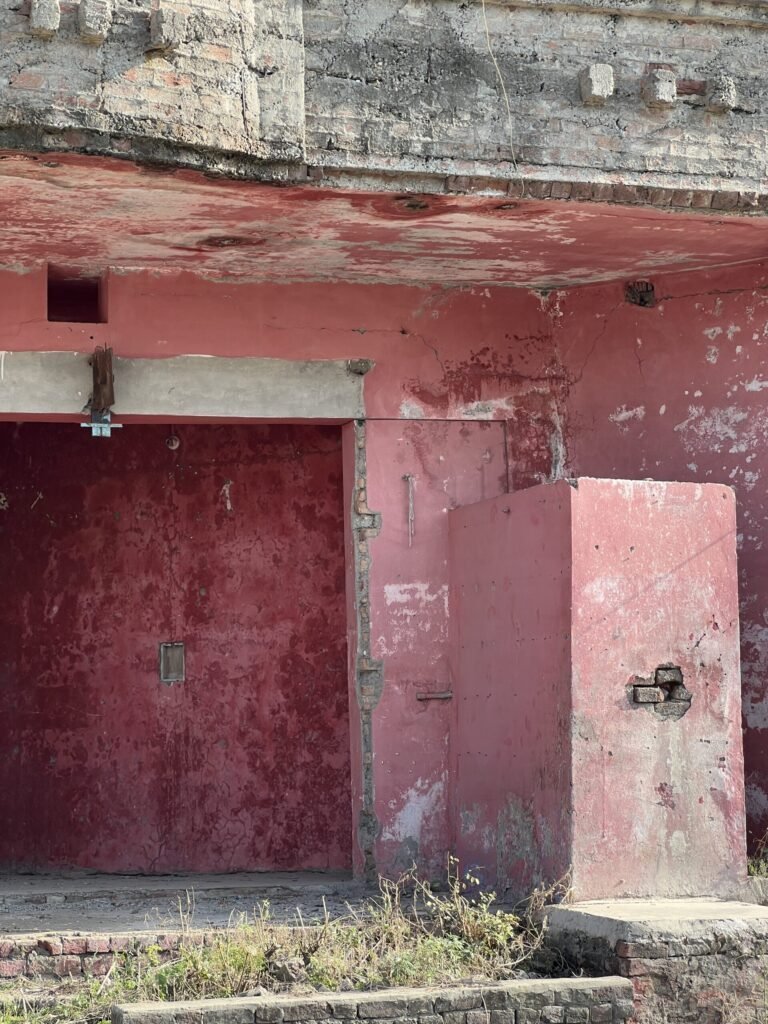From Mandi Bahuddin to Barcelona
From Mandi Bahauddin to Barcelona
Fahid Mohsin spent his early years in one of the many houses in Mandi Bahaduddin that dream of sending out sons to journey to Europe via the dunki. Fahid, as the eldest of six siblings, had the responsibility of providing for his family weighing on his young shoulders. Mandi Bahauddin, with its slow-paced life and familiar faces, remained at the backdrop of his early years. He worked as a mechanic in his hometown as a young man. Upward social mobility would be an unlikely possibility, with his job as a mechanic. This was the pragmatic understanding of his reality. What runs parallel is hope.
The thing about hope and imagination is that it always keeps us hooked. We wonder and dream of what could have been and can be. It’s the impetus of so many of the decisions we make.
Whispers of opportunities in a distant European land, carried by passing agents, and the hope of it all, made Fahid choose the dunki route to Europe. He packed his hopes, some clothes for his back, a bottle of panjeeri and payment for the agent and embarked on a journey that would alter the course of his life. However, he wasn’t alone in his pursuit. Joining a group of hopefuls, each with their aspirations and struggles, he ventured forth, leaving the familiar behind.



Their initial destination was the Tafshtan Border, where they entered Iran. From there, the challenges in their journey unfolded. Turkey, a crucial waypoint, was suddenly unsafe. The help and support that the agent had promised Fahid at the border never arrived. Fahid, along with his fellow travelers were kidnapped and spent two months in captivity. Fahid narrates that there was habitual beating and ransom demands made. He narrates this with a detached manner, indicating that this is not the worst of what the journey was like.
Fahid’s captors let them go and he found his way to Istanbul where Fahid, now carried the weight of borrowed dreams. The dunki continued, this timetime on a boat meant for 8-10 people carrying 32 people. The overloaded vessel barely reached the shores of Greece. Fahid swam the rest to the shore. When I asked where he learnt to swim, he gave a solemn laugh. When you’re about to die, It simply comes to you, he tells me.
Fahid remained in Greece for 2 years where he worked, saved up money. The decision to resume his Dunki reignited the flame of hope as he traversed through Macedonia, Serbia, Bosnia, Croatia, Slovenia, and finally, Italy.
Fahid stayed in Italy for 15 days before the dunki continued through to Spain. In Spain, he reached Barcelona.
The financial toll of the journey was substantial. Fahid estimates it to be around 10,000 Euros. The burden of debt and the struggle for survival led him to work odd jobs in Barcelona. He spent two months in a doner shop before transitioning to working in a café.
Life in Barcelona, though challenging, has had its moments of camaraderie. Shared meals with fellow migrants and the rhythm of daily work has become a routine for Fahid.
Yet, as he reflected on his journey, the “what ifs” lingered. The notion that the money spent on the dunki could have been a substantial investment back home in Pakistan, potentially transforming him into a businessman.
The complexity of migration unfolds in Farukh’s story, not in dramatic crescendos but in the nuanced details of everyday life. The choices made, the challenges faced, and the unspoken sacrifices formed the fabric of his narrative. The “what ifs” linger, while he leads a life that was shaped by the pursuit of a dream.
